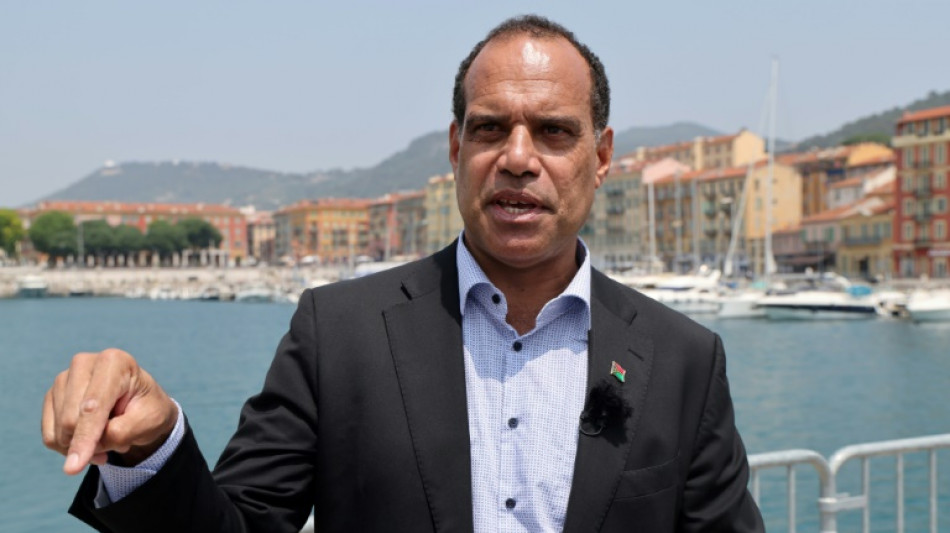
-
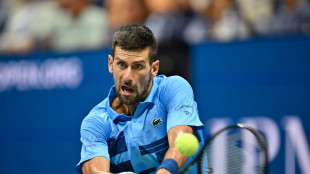 Rested but rusty Djokovic plots US Open ambush
Rested but rusty Djokovic plots US Open ambush
-
'Tough lessons' helping Sabalenka ahead of US Open defence

-
 Meta makes huge cloud computing deal with Google: source
Meta makes huge cloud computing deal with Google: source
-
Blockbuster 'Sincaraz' rivalry ready to light up US Open

-
 Less tax, more luxury: millionaires flock to Dubai
Less tax, more luxury: millionaires flock to Dubai
-
Akie Iwai leads, Canadian teen Deng in hunt at LPGA Canadian Open

-
 Chile, Argentina football fans trade blame over stadium violence
Chile, Argentina football fans trade blame over stadium violence
-
Palestinian camps in Lebanon begin disarming

-
 Five dead as 'thunderous' bomb attack hits Colombian city
Five dead as 'thunderous' bomb attack hits Colombian city
-
Henley leads PGA Tour Championship with Scheffler in pursuit

-
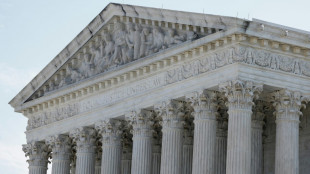 US Supreme Court allows cuts in NIH diversity research grants
US Supreme Court allows cuts in NIH diversity research grants
-
Why fan violence still sullies Latin American football

-
 Lil Nas X arrested after nearly naked nighttime stroll in LA
Lil Nas X arrested after nearly naked nighttime stroll in LA
-
Texas, California race to redraw electoral maps ahead of US midterms
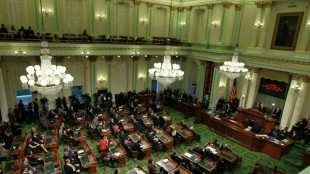
-
 US captain Zackary wants Eagles to soar against England in Women's Rugby World Cup opener
US captain Zackary wants Eagles to soar against England in Women's Rugby World Cup opener
-
Palace's Eze on verge of Arsenal move as he misses European tie

-
 Google to provide Gemini AI tools to US government
Google to provide Gemini AI tools to US government
-
Canada measles cases pass 4,500, highest count in Americas

-
 'Underdog' Jefferson-Wooden shrugs off Tokyo worlds pressure
'Underdog' Jefferson-Wooden shrugs off Tokyo worlds pressure
-
England's Jones relishing 'special occasion' at Women's Rugby World Cup after tragic year

-
 Alcaraz, Djokovic on US Open collision course
Alcaraz, Djokovic on US Open collision course
-
US singer signs on for Russia's answer to Eurovision

-
 Hundred-plus detained after fans 'lynched' during South America cup tie
Hundred-plus detained after fans 'lynched' during South America cup tie
-
Trump hails 'total victory' as US court quashes $464 mn civil penalty

-
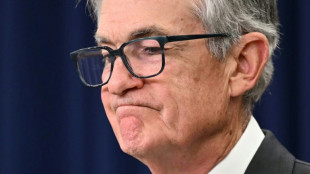 Stocks waver ahead of Fed speech but EU tariff deal lifts Europe
Stocks waver ahead of Fed speech but EU tariff deal lifts Europe
-
Slot says Liverpool will only sign right player at right price amid Isak row
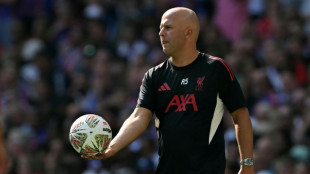
-
 Walmart expects better sales, earnings as shoppers squeezed by tariffs
Walmart expects better sales, earnings as shoppers squeezed by tariffs
-
Malnourished Gaza children facing death without aid, says UN
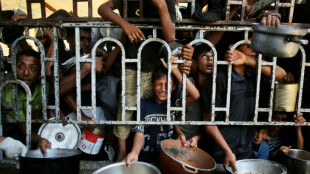
-
 Autopsy rules out 'trauma' in Frenchman livestream death
Autopsy rules out 'trauma' in Frenchman livestream death
-
Liverpool's Frimpong out for several weeks with hamstring injury

-
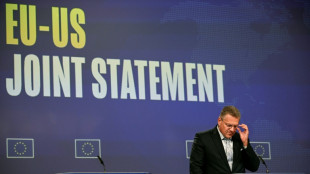 EU gets 15% US tariff for cars, but fails to get wine reprieve
EU gets 15% US tariff for cars, but fails to get wine reprieve
-
Leverkusen rebuild continues with Bade and Echeverri signings

-
 Ghana singer Shatta Wale held in US fraud probe over Lamborghini purchase
Ghana singer Shatta Wale held in US fraud probe over Lamborghini purchase
-
Wales skipper Callender passed fit for Women's Rugby World Cup opener against Scotland

-
 Only goal is to win, says ever-competitive veteran Fraser-Pryce
Only goal is to win, says ever-competitive veteran Fraser-Pryce
-
Maresca adamant Fofana 'very happy' at Chelsea

-
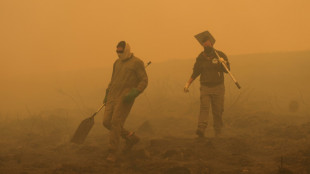 Record EU wildfires burnt more than 1 mn hectares in 2025: AFP analysis
Record EU wildfires burnt more than 1 mn hectares in 2025: AFP analysis
-
Hurricane Erin brings coastal flooding to N. Carolina, Virginia
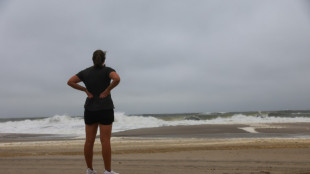
-
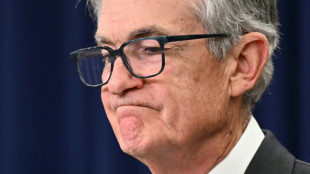 Stocks slide as investors await key Fed speech
Stocks slide as investors await key Fed speech
-
EU gets 15% US tariff for cars, fails to secure wine reprieve
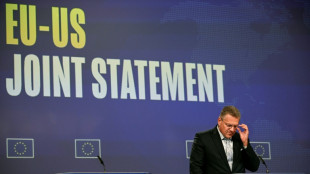
-
 Russian fuel prices surge after Ukraine hits refineries
Russian fuel prices surge after Ukraine hits refineries
-
Maguire feels it will be 'silly' to leave Man Utd now

-
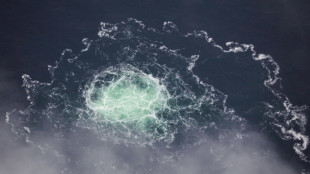 Ukrainian suspect arrested in Italy over Nord Stream blasts
Ukrainian suspect arrested in Italy over Nord Stream blasts
-
England include ex-skipper Knight in Women's World Cup squad as Cross misses out

-
 Walmart lifts outlook for sales, earnings despite tariffs
Walmart lifts outlook for sales, earnings despite tariffs
-
UK sees record asylum claims as row brews over housing
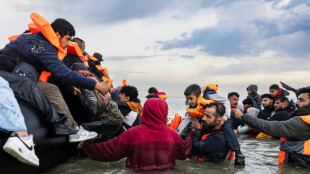
-
 Swiss international Okafor move to Leeds heralds new EPL record
Swiss international Okafor move to Leeds heralds new EPL record
-
Microsoft re-joins handheld gaming fight against Nintendo's Switch

-
 McReight to captain Wallabies against Springboks
McReight to captain Wallabies against Springboks
-
Taiwanese boxer Lin agrees to gender test for world championships


'We have to try everything': Vanuatu envoy taking climate fight to ICJ
Tired of pleading for countries to act on climate change, Vanuatu upped the ante -- it asked the world's highest court if governments were legally obligated to do something about it.
The landmark case has given Ralph Regenvanu a front row seat to history.
As Vanuatu's environment minister, he has taken the decades-long climate fight by Pacific nations to the International Court of Justice (ICJ) in The Hague, hoping to safeguard their islands' survival.
Regenvanu has called the case among the most consequential "in the history of humanity".
A ruling could come as early as next month.
This interview, conducted by AFP on the sidelines of the UN Ocean Conference in Nice, France, has been edited for length and clarity:
Q: Why did Vanuatu go to the ICJ?
A: "We thought it was necessary to take a legal approach to the issue of climate change because we feel that the UNFCCC (United Nations Framework Convention on Climate Change) process, which has been going for 30 years, has not done anywhere near enough.
"We agreed to ramp down greenhouse gas emissions. We've seen the highest levels ever just recently. We've talked about climate finance. We haven't seen that. These pledges that were made in Paris? We've not seen them having any effect.
"And so we wanted to see if we could get international law to actually start to impose some requirements."
Q: Has it worked?
"This request for an advisory opinion from the ICJ has been historic. It was the first request from the United Nations General Assembly for an advisory opinion that was unanimous. No country opposed requesting this.
"It has also mobilised youth. There's this global climate justice movement of youth now, and we have many of them here (in Nice). It's really raised the consciousness and political savvy of youth to engage with these kinds of processes.
"A lot of countries would talk about what they're doing on climate change. But when we got to the court, it became very clear that they weren't prepared to do what they were talking about. So it exposed the hypocrisy of a number of countries as well."
Q: Do you think others will take the legal route?
A: "We're going to have to do a far greater range of things outside these UN processes -- in courts, in each and every fora we can find, to push for real climate action.
"We went to the International Tribunal of the Law of the Sea -- we got an advisory opinion. We're waiting for an advisory opinion from the International Court of Justice on the same question: the obligations of states to prevent greenhouse gas emissions, and what are they consequences if they don't.
"Along with Fiji and Samoa, we've submitted a resolution to the Rome Statute -- the International Criminal Court -- for a new crime of ecocide to be created. That's in process.
"We will continue to call for the strongest action in all fora including this one, the United Nations Ocean Conference.
"Anything and everything we can -- because what we're doing is not enough."
Q: Why keep going if you're constantly disappointed?
A: "Going to the climate COPs is a very depressing exercise. Last year, for example, Papua New Guinea said we aren't going anymore. I could perfectly understand that.
"The problem is, when we're not at the table, we're on the menu. And so we have to be there, so people see us and realise -- and hopefully have a little bit of conscience -- that there are these people in the world who are going to perish as a result of your actions."
Q: Why is this ocean summit important?
"The ocean has been feeding us. It's been our spiritual home. It's been our highway. It has been the basis of our cultural heritage, our identity. We've been surviving off the ocean for as long as we've existed, which is thousands of years.
"And we see the change, and the change is impacting us. We know that if we don't address climate change, greenhouse gas emissions, and if we don't take serious steps to reverse global warming, but also keep the biodiversity that has always been sustaining us, it threatens our very existence."
F.AbuZaid--SF-PST
